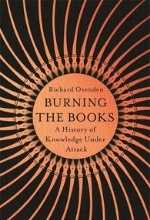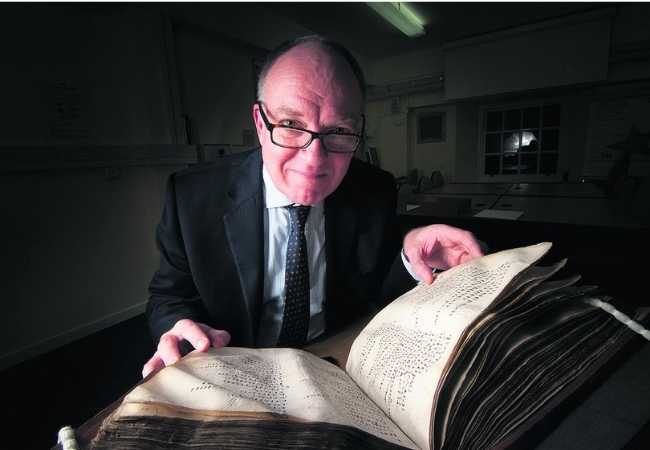Posts com a Tag ‘Burning the Books: A History of Knowledge Under Attack (T)’
Burning the Books / Richard Ovenden, The lost library / Dan Rabinowitz
Richard Ovenden – Foto: Library of Congress /
 The burning of books is a highly emotive subject. The Nazis’ bonfires of Jewish books and other ‘degenerate’ literature in 1933 horrify, and not only because they presaged the incinerators of the Holocaust. From the paradigmatic (and, we learn, probably apocryphal) conflagration of the ancient library of Alexandria, which consumed most of the corpus of Classical literature, to the torching of the Baghdad National Library following the invasion of Iraq in 2003, the destruction of books (and archives) seems to shock more than the loss of any other form of material culture. Why should this be? Although Richard Ovenden does not directly address the question in his excellent Burning the Books, the answer may lie both in the unparalleled capacity of books and archives to preserve the past—they constitute our collective memory—and in their limitless potential to generate new knowledge, Milton’s ‘potencie of life’. Perhaps, as Sappho’s enigmatic ‘you burn me’ fragment intimates, something of ourselves perishes in the destruction of books.
The burning of books is a highly emotive subject. The Nazis’ bonfires of Jewish books and other ‘degenerate’ literature in 1933 horrify, and not only because they presaged the incinerators of the Holocaust. From the paradigmatic (and, we learn, probably apocryphal) conflagration of the ancient library of Alexandria, which consumed most of the corpus of Classical literature, to the torching of the Baghdad National Library following the invasion of Iraq in 2003, the destruction of books (and archives) seems to shock more than the loss of any other form of material culture. Why should this be? Although Richard Ovenden does not directly address the question in his excellent Burning the Books, the answer may lie both in the unparalleled capacity of books and archives to preserve the past—they constitute our collective memory—and in their limitless potential to generate new knowledge, Milton’s ‘potencie of life’. Perhaps, as Sappho’s enigmatic ‘you burn me’ fragment intimates, something of ourselves perishes in the destruction of books.
Burning the Books, which has justly garnered considerable critical and popular attention, eloquently and powerfully describes numerous attacks upon knowledge across four millennia, from the destruction of Ashurbanipal’s cuneiform library in 621 BCE to the ‘Windrush’ scandal of 2010 when Home Office officials were revealed to have destroyed records that would have proved migrants’ entitlement to British citizenship. While Burning the Books may not break new ground in the scholarship on libraries and book history—it largely draws upon existing literature—it is meticulously researched and referenced, compellingly argued, and likely to prove a landmark in the history of libraries and the preservation of knowledge.


